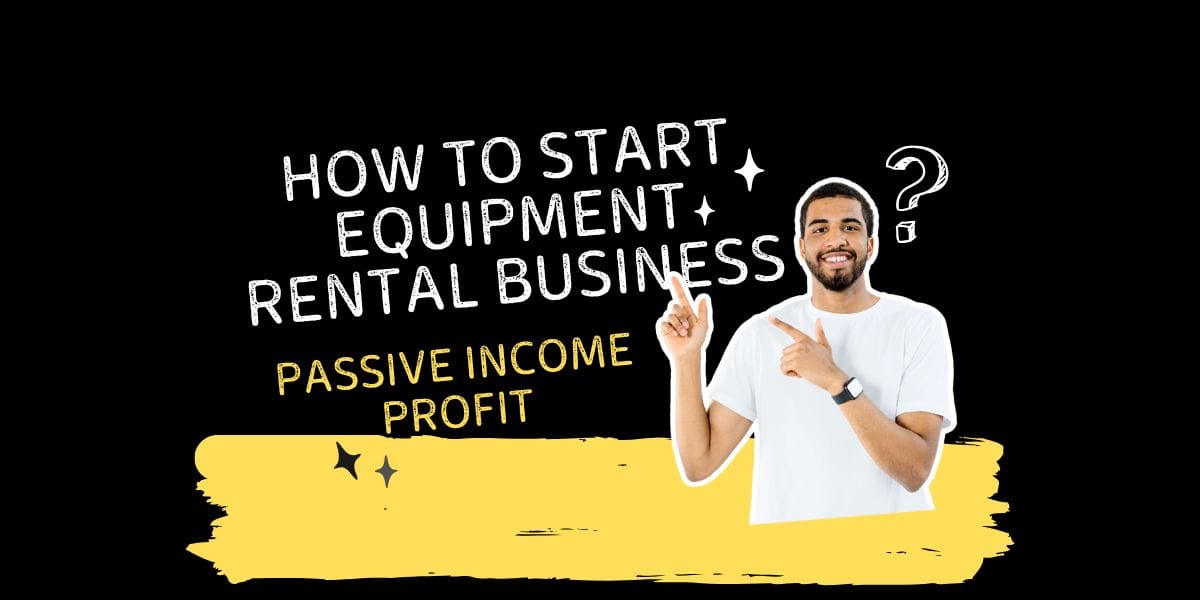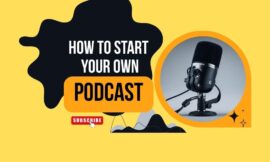How to Start an Equipment Rental Business for Passive Income | Step-by-Step Guide
Are you looking for a new way to earn extra money without having to work all day, every day? If so, starting an equipment rental business for passive income could be the perfect idea for you. Do you want a business that can make money even when you’re not around? In this guide, we’ll break down everything you need to know about equipment rentals. We’ll cover what equipment rental business is, why it’s a great way to make passive income, how to start your own equipment rental business, and the best tips for success. Let’s get started!
(if the video, how to start equipment rental business does not load, it is on Youtube)
First, let’s talk about what an equipment rental business actually is. An equipment rental business is when you buy items—like tools, machines, or even party supplies—and rent them out to people or companies who need them for a short time. Instead of selling your equipment, you let others use it for a fee. Some examples of equipment you could rent include construction tools like drills or saws, gardening machines like lawn mowers, or even party things like tents and speakers. By renting out your equipment, you can keep earning money from the same items over and over.
So, why is starting an equipment rental business a great way to make passive income? Passive income means you don’t have to work every hour to make money. Once you buy the equipment and set up your rental process, you can earn money even when you’re not working. Here are some reasons why equipment rental is a smart choice for passive income:
First, it can bring in steady money. As long as your equipment is useful and people want to rent it, you’ll have a regular flow of income. Second, you don’t need to be there all the time. Your customers pick up the equipment, use it, then return it. You can spend your time doing other things. Third, you can start small and grow bigger as you make more money. Finally, there are lots of different types of equipment you can rent out, so you can find something that fits your budget and your interests.
Now let’s look at the steps to start your own equipment rental business. Don’t worry—you don’t need a lot of experience or a huge amount of money to get started. Here’s a simple, step-by-step guide that anyone can follow.
Step one: Do your research. Before you buy anything, find out what people in your area need. You can talk to neighbors, check online groups, or visit stores to see what equipment is popular. For example, if you live in a place where lots of people do home projects, tools like drills, saws, or ladders might be in demand. If you’re near farms or large gardens, things like lawn mowers or hedge trimmers could be popular. Or, if your town has lots of parties or weddings, renting out tents, chairs, or sound systems could be a good idea.
Step two: Choose what equipment to buy. Once you know what’s popular, make a list of equipment you want to offer. Start with just a few items that are easy to store and won’t cost too much. Remember, you can add more equipment later as your business grows.
Step three: Buy your equipment. Look for high-quality items that will last a long time. You can find good deals by shopping during sales, buying second-hand from trusted sellers, or checking online marketplaces. Just make sure the equipment is in great shape and safe to use.
Step four: Set up your business. Think of a catchy name that people will remember. Register your business if you need to, and make sure you have any licenses or insurance required in your area. Insurance is important because it helps protect you if your equipment gets damaged or lost.
Step five: Decide how you’ll rent out your equipment. There are a few ways to do this. You can set up a simple website where people can see what you have and book what they need, or you can use rental platforms like Fat Llama or other online rental marketplaces. You can also advertise on local Facebook groups, community boards, or even put up flyers in your neighborhood. Make sure your customers know how to contact you and how to pick up and return the equipment.
Step six: Set your rental prices. Check what other people are charging for similar equipment in your area, and set your prices to match or be a little lower. Don’t forget to include a security deposit—this is extra money your customers pay up front, which they get back when they return your equipment in good shape. This helps protect you if something goes wrong.
Step seven: Make a simple rental agreement. This is just a written note that says how long your customer can use the equipment, how much it costs, and what happens if the equipment gets damaged. You can find free templates online, or make your own with clear, easy-to-understand rules.
Step eight: Keep your equipment in good shape. Check it before and after each rental to make sure it’s working well. Clean it and do any small repairs if you need to. This will help your equipment last longer and keep your customers happy.
Now, let’s talk about some tips to help you succeed in your equipment rental business.
First, always offer great customer service. Be friendly, answer questions quickly, make it easy for people to rent from you. Happy customers will come back and tell their friends about your business.
Second, keep track of your equipment. Make a list of everything you own, and write down who rents it and when it’s due back. This helps you stay organized and makes sure nothing gets lost.
Third, use social media and your website to reach more people. Post pictures of your equipment, share helpful tips, and let people know about any deals or specials you’re offering.
Fourth, start small and grow slowly. Don’t try to buy too much equipment at once. It’s better to start with a few items, see what people want, and use your profits to buy more equipment in the future.
Fifth, pay attention to the seasons. Some equipment is more popular at certain times of year. For example, lawn mowers are in demand in the spring and summer, while party equipment might be needed more in the summer and fall.
Sixth, keep learning. Talk to other people with equipment rental businesses, watch equipment rental videos, or read articles to get new ideas and improve your business.
Let’s go over some of the most popular types of equipment to rent:
- Construction tools like drills, saws, ladders, or cement mixers are always in demand for people doing home projects or repairs.
- Gardening equipment such as lawn mowers, leaf blowers, or hedge trimmers can be rented to homeowners and landscapers.
- Party supplies like tents, tables, chairs, and speakers are needed for birthdays, weddings, or other events.
- Technology items, including cameras, projectors, or sound systems, can be rented to students, creators, or businesses.
- If you want to stand out, think about adding special equipment that’s hard to find, like popcorn machines for parties, snow blowers for winter, or even drones for photographers.
Of course, every business has some risks. Sometimes equipment gets damaged or lost. Sometimes the demand goes up and down. To protect yourself, always use a rental agreement, ask for a deposit, and get insurance if you can. Take care of your equipment, and try to offer items that people need all year long.
Let’s sum up. Starting an equipment rental business for passive income is a smart, simple way to earn extra cash. By doing a little research, buying the right equipment, and offering great service, you can build a business that keeps making money for you, even when you’re not working.
If you’re ready to dive deeper into the world of equipment rentals and unlock a steady stream of passive income, be sure to visit All Biz Ideas dot com using the link in the description. There, you’ll find a comprehensive step-by-step guide, expert tips, and practical resources to help you launch and grow your own equipment rental business. Start your journey toward financial freedom today by learning from industry experts and proven strategies tailored for your success.
So, are you ready to start your own equipment rental business? Take the first step today—do your research, pick your equipment, and get started! If you found this guide helpful, make sure to like, subscribe, and hit the bell for more tips on making passive income. Leave a comment below if you have any questions, or share your own rental business ideas. Good luck, and thanks for watching!



